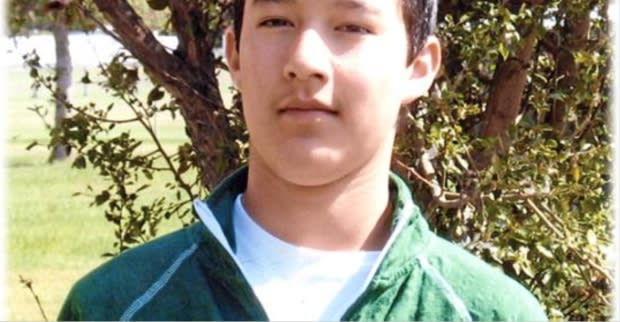Officers involved in Brydon Whitstone shooting should not have met in its aftermath: RCMP review
The RCMP officers involved in a heated altercation that culminated with the death of a Saskatchewan man should not have met mere hours after the man's shooting, according to an internal review conducted by another RCMP division.
Brydon Whitstone, a 22-year-old man from Onion Lake Cree Nation, died after he was shot by an RCMP officer in North Battleford, Sask., on Oct. 21, 2017.
Whitstone had led officers on a high-speed chase, during which his vehicle collided with two marked RCMP vehicles. Whitstone then refused to exit his car, even as officers surrounded him and shouted orders to surrender.
The officer who shot Whitstone, Const. Jerry Abbott, told a recent coroner's inquest that he thought Whitstone was reaching for a gun. No weapon was found, but several bullets were recovered from Whitstone's clothing.
After the shooting, Saskatchewan RCMP's F Division asked Manitoba's RCMP arm to probe the conduct of responding officers during and after the Whitstone incident.
The review found only one "procedural gap," resulting in one recommendation, according to a news release issued Tuesday by Saskatchewan RCMP.
"That members and supervisors be retold of the importance in keeping involved members separated and reminded that they are not to discuss events in regards to this type of serious incident."
'An emotional well-being debrief'
About two and a half hours after the shooting, officers involved in the Whitstone altercation met at the Battlefords RCMP detachment for "an emotional well-being debrief." The meeting lasted more than two hours and was meant both to check in on officers and make them aware of emotional and mental health supports, according to the release.
"Our policy calls for those involved to be separated immediately after a critical incident such as this," according to the release.
The coroner's inquest into Whitstone's death heard not only about that meeting, but also about two officers who texted with each other two days after the shooting.
Stephanie Lavallee, one of two Whitstone family lawyers, said after the inquest that at least one officer's account of the night changed between the time of his original statement to the Regina Police Service — taken immediately after shooting — and the time of the inquest, "due to speaking with another officer involved."
Mark Ebert, the other Whitstone family lawyer, said the debriefing should not have happened.
"I've spoken to social workers and there are times when these emotional debriefings are needed to be in a group setting, but in this context, I don't think it's necessary," he said.
"I don't understand how [the debriefs can be held] with the expectation that they're not going to talk about the incident."
The Saskatchewan RCMP said it doesn't believe the debrief had any effect on the Regina police investigation into the shooting.
"The evidence in its totality led to the conclusion that our officers acted reasonably and appropriately and in accordance with the Canadian Criminal Code," said the RCMP's release.
Saskatchewan's Ministry of Justice announced last September that Abbott would not face any criminal charges due to his conduct that night.

The Saskatchewan RCMP added Tuesday that it has followed through on Manitoba's recommendation by issuing a communique to all officers serving in Saskatchewan about the importance of staying separated after an incident.
During the inquest, jurors heard that after trying unsuccessfully to revive Whitstone, Abbott sat by a tree to shakily jot down his notes about his bloody encounter with Whitstone.
Abbott's eventual departure from the scene "met the requirements of our policy," according to the RCMP release.
'Policing can be difficult'
The RCMP did not provide an interview Tuesday, but the release ended with the organization's most frank reflection yet on the night of Whitstone's shooting.
"Policing can be a difficult and demanding profession. At times, it calls for split-second, life-or-death decisions to be made under great duress. It is a heavy burden of responsibility that our officers carry, but it is a responsibility that we train for and that we take seriously."

